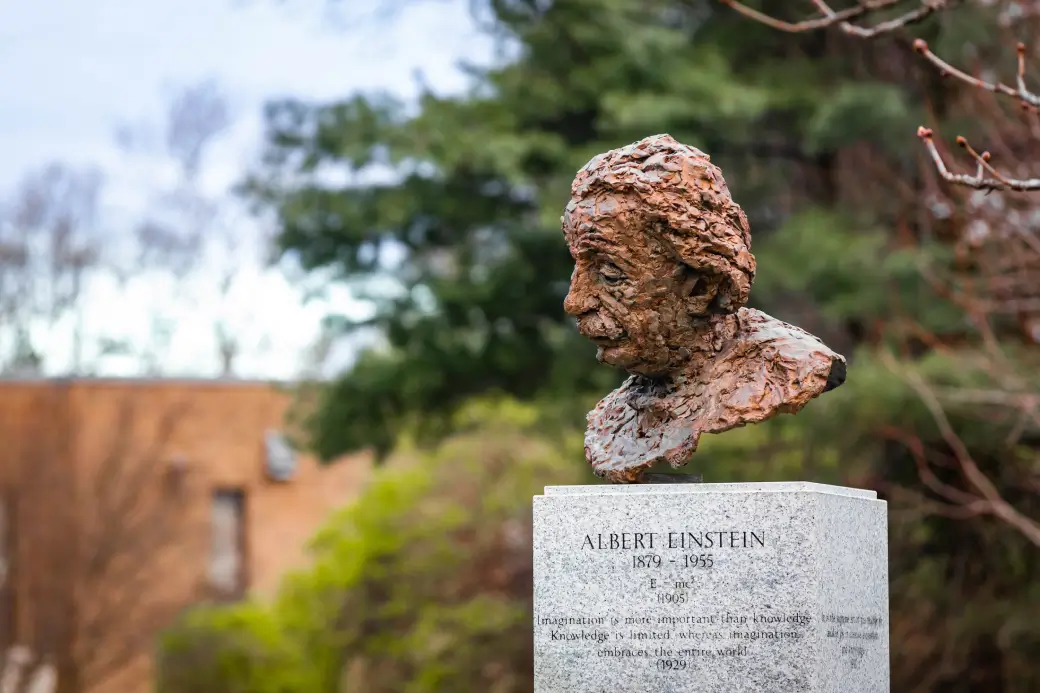A great college application isn’t just about grades and test scores—it’s about telling your story. Supplemental essays give you a unique opportunity to go beyond the basics and show admissions officers who you truly are. But with so many prompts and word limits, where do you start?
In this guide, you’ll learn:
-
What supplemental essays are and why they matter in college admissions.
-
How many supplemental essays you need to complete based on your chosen schools.
-
Why supplemental essays are as important as the personal statement.
-
Common supplemental essay topics and how to approach them effectively.
-
Key strategies for writing strong, compelling responses that make you stand out.
-
Examples of real supplemental essay prompts from top universities like Harvard, Princeton, MIT, Columbia, and Yale.
By the end of this article, you’ll have a clear roadmap for crafting outstanding supplemental essays that strengthen your college application.
What Is a Supplemental Essay?
A supplemental essay is an additional college application essay required by many universities alongside the main Common App personal statement.
While most students know that all colleges expect them to write a Common App essay, also known as a Personal Statement, parents and students are not as familiar with the supplemental college essays they need to write. Besides the central personal statement, every student needs to respond to supplemental college essay prompts. In this post, we are sharing everything you need to know about supplemental college essay prompts, as well as supplemental college essay prompt examples and ways to think about the prompts.
How Many Supplemental Essays Do I Need to Complete?
Depends on the schools you are applying to.
Some schools require no supplemental essays, while others require many. Schools like Stanford, Yale, Johns Hopkins, and Tufts have many supplemental essays. Other schools like Arizona State University, Drexel, and Northeastern traditionally have had no supplemental essays at all.
Schools like Harvard and Princeton will require additional essays that look much like the Personal Statement, and some students may have to write two, three, or even up to four 650+ word additional essays. This is especially true for students applying to Honors Colleges at universities.
Are Supplemental Essays as Important as the Personal Statement in College Admissions?
Supplemental essays are very important to the application. They allow students to highlight their fit for a university and showcase their interesting personalities. Students can also mention research-based work (always a plus!), service projects, community work, and passion areas.
While strong supplemental essays are key to standing out, standardized test scores can still play a crucial role in strengthening your college application to many schools. Many top universities, including Yale, Brown, and Dartmouth, consider SAT and ACT scores to be important factors in admissions decisions. To ensure your scores reflect your full potential, consider working with a professional tutor. Our SAT & ACT tutoring services provide personalized strategies to help you maximize your test performance and improve your overall college application.
What Are Common Supplemental Essay Topics?
Supplemental essays for each school often repeat.
The most common supplement questions are:
-
Explain why you chose your major. It is good to have a major to talk about here. For students who are undecided, it is better not to center the essay around being undecided. Picking a major and highlighting an interest in it can actually serve a student well. Other questions schools commonly ask are:
-
Tell us about an extracurricular you do just for the fun of it. It is important to create a strong outline for these essays, do serious research, and think before writing. Investing time in planning these responses, sharing novel experiences, and showing very specific knowledge will help students stand out from peers with generic responses.
-
Why us? This requires school-specific research and work to figure out where the student connects to the school. Students often want to experience university and campus life. The campus is an immediate go-to for students on these prompts: the mountains or the city, the lakes and trees on campus, playing on a team, etc.
What schools want in response to this essay prompt is to know that students are going to use the most resource-rich time of their lives thoughtfully over four years. Students can start this essay by making a list of areas they will look forward to academically–professors and research opportunities with them, classwork, special academic programs offered uniquely on the campus they plan to attend, and more.
Students can connect the school to their own meaningful experiences during high school. For example, students applying for engineering should mention high school engineering projects they have worked on over summers or during the school year.
For example, many students have gone through Boeing’s program or Project Lead the Way in school. They might have completed an engineering camp like UPENN Summer Engineering or Cooper Union Summer STEM. It is important to highlight that work in the “Why Us?” essay to connect to ways one might contribute to specific university programs.
What Makes a Good Supplemental Essay?
A strong supplemental essay will be more technical than a narrative.
There are a few golden rules for supplemental essays:
-
First, each essay should be about a different topic. Students should not repeat or talk about the same things over and over again. This is a chance to really show the admissions committee who you are, and repeating answers about the same topic is a missed opportunity.
-
Present your adult self. Admissions committees are less interested in hearing about students reading Harry Potter or watching TV as their favorite extracurricular activity in essays. They want to hear that students are researching, playing an instrument, reading physics books voraciously, or engaging in math for fun. They are interested in seeing that students are writing in creative writing summer programs, publishing their work, and applying for awards. They want to understand what makes students tick. Essay responses can be quirky and fun. But they should be packed with information showing off your areas of extracurricular and academic strength, too.
What Are the Supplemental Essay Questions for the Top 5 Schools in the Country for This Year?
Princeton University Supplemental Essays
Princeton has many supplemental essays. Responses range from 50 to 250 words.
-
Briefly elaborate on an activity, organization, work experience, or hobby that has been particularly meaningful to you. (150 words)
-
At Princeton, we value diverse perspectives and the ability to have respectful dialogue about difficult issues. Share a time when you had a conversation with a person or a group of people about a difficult topic. What insight did you gain, and how would you incorporate that knowledge into your thinking in the future? (250 words)
-
Princeton has a longstanding commitment to service and civic engagement. Tell us how your story intersects (or will intersect) with these ideals. (250 words)
-
What is a new skill you would like to learn in college? (50 words)
-
What brings you joy? (50 words)
-
What song represents the soundtrack of your life at this moment? (50 words)
-
Princeton also requires students to submit a graded written paper as part of their application. Ideally, this will be a humanities-based paper.
If you’re applying to Princeton, understanding the five key things that make a compelling Princeton application can help you structure your responses effectively.
Harvard University Supplemental Essays
Harvard offers several prompts for students to identify areas of meaning to them. The 100-word short answer prompts are below.
Short Answers:
The following required five short-answer questions invite you to reflect on and share how your life experiences and academic and extracurricular activities shaped you, how you will engage with others at Harvard, and your aspirations for the future. Each question can be answered in about 100 words.
-
Harvard has long recognized the importance of enrolling a diverse student body. How will the life experiences that shape who you are today enable you to contribute to Harvard?* (Max: 150 words)
-
Describe a time when you strongly disagreed with someone about an idea or issue. How did you communicate or engage with this person? What did you learn from this experience?* (Max: 150 words)
-
Briefly describe any of your extracurricular activities, employment experience, travel, or family responsibilities that have shaped who you are.* (Max: 150 words)
-
How do you hope to use your Harvard education in the future?* (Max: 150 words)
-
Top 3 things your roommates might like to know about you.* (Max: 150 words)
Understanding what makes Harvard the gold standard of U.S. higher education can help students align supplemental essays with Harvard’s core values and admissions expectations. Whether writing about academic interests or leadership experiences, students should ensure responses reflect Harvard’s culture and focus areas.
Columbia University Supplemental Essays
Columbia has many supplemental questions that ask students about their interests in reading, academics, and culture. Because Columbia has a lengthy series of requirements in the Common Core, their admissions committee evaluates whether students will be interested enough in the core curriculum through some of their questions.
Students can share additional results or predicted scores from academic examinations they have taken or plan to take. These exams may include International Baccalaureate, A Levels, school leaving exams/certificates, AIME, AMC 10, national exams, or other results. Many students will not have additional information to share and may leave the space blank.
Min: 0 / Max: 100
For the four short answer questions, please respond in 150 words or fewer.
BEWARE: Don’t be surprised that one of the short answer questions does not appear until a student has selected Columbia College or Columbia Engineering under the “Academics” section of Columbia’s application questions.
-
Question 1: List a selection of texts, resources, and outlets that have contributed to your intellectual development outside of academic courses, including but not limited to books, journals, websites, podcasts, essays, plays, presentations, videos, museums, and other content that you enjoy.
-
(100 words or fewer)
-
Question 2: A hallmark of the Columbia experience is being able to learn and thrive in an equitable and inclusive community with a wide range of perspectives. Tell us about an aspect of your own perspective, viewpoint, or lived experience that is important to you, and describe how it has shaped the way you would learn from and contribute to Columbia’s diverse and collaborative community.
-
(150 words or fewer)
-
Question 3: In college/university, students are often challenged in ways that they could not predict or anticipate. It is important to us, therefore, to understand an applicant’s ability to navigate through adversity. Please describe a barrier or obstacle you have faced and discuss the personal qualities, skills, or insights you have developed as a result.
-
(150 words or fewer)
-
Question 4: Why are you interested in attending Columbia University?
-
We encourage you to consider the aspect(s) that you find unique and compelling about Columbia.
-
(150 words or fewer)
-
Question 5: What attracts you to your preferred areas of study at Columbia Engineering?
-
(150 words or fewer) Min: 1 / Max: 150
Research Supplement (Optional)
Before completing this section, kindly review our instructions on supplementary materials:
https://undergrad.admissions.columbia.edu/apply/process/supplementary-materials
Links to research that you have included in any section of the Common Application (e.g., Dropbox, Google Drive, websites, etc.) will not be reviewed.
Have you completed research with a faculty member, adviser, or mentor in an academic discipline such as science, engineering, humanities, social science, languages, or other academic interests? If yes, please complete the following questions regarding your research experience:
-
Where was the research conducted? Required
-
Was the research conducted as part of a research program?
-
If yes, please provide the name of the program.
-
-
Students are able to participate in valuable research opportunities that may or may not require a fee. For the research you have listed, was a fee required to participate? (Yes or No)
-
Describe the amount of time you worked on this research (e.g., 10 hr/week for 3 months; 2 hr/week for the academic year, etc.)
-
Describe your specific research responsibilities and contributions
-
Research Adviser or Mentor Name
-
Research Adviser or Mentor Title
-
Research Adviser or Mentor Email
-
Research Adviser or Mentor Mailing Address
-
How did you meet your research adviser or mentor? (Min: 1 / Max: 50)
-
What role did your adviser/mentor play in your research? (Min: 1 / Max: 50)
-
List any recognitions you have received for this research (e.g., publications, presentations, awards, etc.)
Research Abstract
Please note that research abstracts are typically one page in length and encompass a brief synopsis of your work.
Massachusetts Institute of Technology Supplemental Essays
MIT has a series of short answer essay questions:
-
Describe the world you come from; for example, your family, clubs, school, community, city, or town. How has that world shaped your dreams and aspirations? (250 words or fewer)
-
Pick what field of study at MIT appeals to you the most right now, and tell us more about why this field of study appeals to you. (100 words or fewer)
-
We know you lead a busy life full of activities, many of which are required of you. Tell us about something you do simply for the pleasure of it. (200–250 words)
-
At MIT, we bring people together to better the lives of others. MIT students work to improve their communities in different ways, from tackling the world’s biggest challenges to being good friends. Describe one way in which you have contributed to your community, whether in your family, the classroom, your neighborhood, etc. (200–250 words)
-
Tell us about the most significant challenge you’ve faced or something important that didn’t go according to plan. How did you manage the situation? (200-250 words)
Yale University Supplemental Essays
Students at Yale have time to explore their academic interests before committing to one or more major fields of study. Many students either modify their original academic direction or change their minds entirely. As of this moment, what academic areas seem to fit your interests or goals most comfortably? Please indicate up to three from Yale’s list.
-
Why do these areas appeal to you? (125 words or fewer)
-
What is it about Yale that has led you to apply? (125 words or fewer)
-
What inspires you? (35 words)
-
Yale’s residential colleges regularly host conversations with guests representing a wide range of experiences and accomplishments. What person, past or present, would you invite to speak? What would you ask them to discuss? (35 words)
-
You are teaching a new Yale course. What is it called? (35 words)
-
Yale students embrace the concept of “and” rather than “or,” pursuing arts and sciences, tradition and innovation, defined goals and surprising detours. What is an example of an “and” that you embrace? (35 words)
-
Yale’s extensive course offerings and vibrant conversations beyond the classroom encourage students to follow their developing intellectual interests wherever they lead. Tell us about your engagement with a topic or idea that excites you. Why are you drawn to it? (250 words)
-
Respond to one of the following
-
2A. Reflect on a community to which you feel connected. Why is it meaningful to you? You may define community however you like.
-
2B. Reflect on something that has given you great satisfaction. Why has it been important to you?
Yale admissions officers look for applicants who can thoughtfully articulate their academic passions and community engagement. To create standout responses, check out our comprehensive guide to Yale’s supplemental essays for expert insights on structuring your essays for maximum impact.
Mastering Supplemental Essays: Your Path to College Admission Success
Supplemental essays are a crucial part of the college admissions process. They allow students to highlight unique experiences, passions, and academic interests. Unlike the Common App personal statement, these essays allow applicants to tailor their responses to specific schools and show how they align with the university’s values, culture, and academic programs.
If you’re feeling overwhelmed by the number of essays you need to write or unsure how to make your responses stand out, Opus College Prep is here to help. Our expert college admissions consultants provide personalized guidance to craft compelling, school-specific essays that maximize your chances of acceptance.
Ready to make your college application stand out? Contact Opus College Prep today for expert essay coaching and application support!





